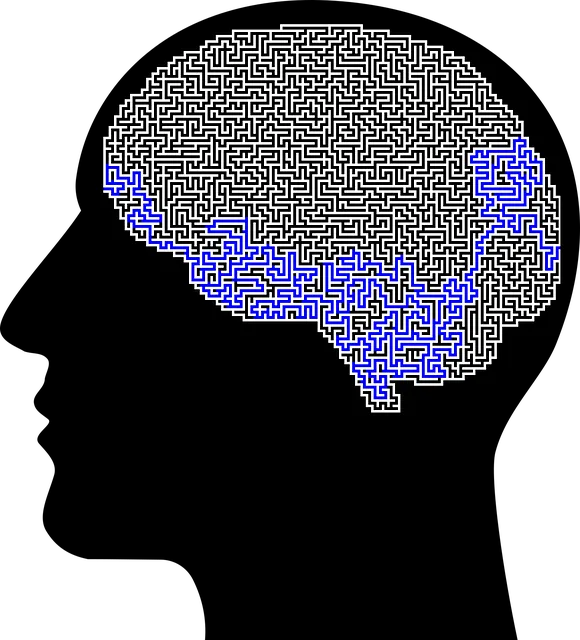The Kaiser Permanente mental health center Englewood prioritizes client safety and risk management through comprehensive risk assessment. Utilizing advanced tools, professionals identify vulnerabilities and implement tailored interventions, including burnout prevention and community outreach. This center excels in culturally sensitive care, offering specialized programs and dedicated staff to empower diverse individuals. They address unique challenges like severe psychiatric disorders and high caseloads, leveraging Kaiser Permanente's resources for crisis intervention and staff resilience. Continuous evaluation, emotional intelligence fostering, and mindfulness practices ensure positive mental health outcomes while maintaining a supportive environment.
Mental health professionals confront unique risks in their daily practices. This article explores comprehensive risk assessment strategies essential for creating safe work environments, particularly focusing on the Kaiser Permanente Mental Health Center Englewood as a case study. We delve into understanding risk assessment, identifying potential hazards, and implementing robust management strategies. By examining these aspects, we highlight the importance of continuous evaluation to enhance safety and improve patient care at Kaiser Permanente and similar facilities.
- Understanding Risk Assessment in Mental Health Settings
- The Role of the Kaiser Permanente Mental Health Center Englewood
- Identifying Potential Risks and Hazards for Professionals
- Implementing Effective Risk Management Strategies
- Continuous Evaluation and Improvement for Safe Practice
Understanding Risk Assessment in Mental Health Settings

Risk assessment is a cornerstone in mental health settings, crucial for ensuring client safety and managing potential risks within Kaiser Permanente mental health center Englewood. It involves a comprehensive evaluation process that identifies vulnerabilities and predictors of adverse outcomes among individuals seeking therapy. By implementing effective risk assessment tools, healthcare professionals can proactively navigate complex situations and deliver tailored interventions.
This practice extends beyond identifying immediate threats, encompassing considerations like burnout prevention strategies for healthcare providers, community outreach program implementation, and compassion cultivation practices. At the Kaiser Permanente mental health center Englewood, these measures contribute to creating a supportive environment that fosters recovery while mitigating risks associated with providing mental health services in a dynamic healthcare landscape.
The Role of the Kaiser Permanente Mental Health Center Englewood

The Kaiser Permanente Mental Health Center Englewood plays a pivotal role in providing comprehensive and culturally sensitive mental healthcare services to a diverse community. Situated in a vibrant urban setting, this center is dedicated to fostering inner strength development among individuals from various backgrounds. It offers a wide range of therapeutic interventions tailored to address the unique needs of each client, ensuring cultural competency at every step. The center’s commitment to excellence in mental healthcare is evident through its comprehensive approach that integrates evidence-based practices with an understanding of cultural nuances.
Through specialized programs and dedicated staff, Kaiser Permanente Mental Health Center Englewood prioritizes cultural sensitivity in mental healthcare practice. It recognizes the importance of Healthcare Provider Cultural Competency Training in bridging communication gaps and fostering inclusive environments. By empowering both professionals and clients with knowledge about diverse cultural perspectives, the center promotes effective treatment outcomes and enhances overall well-being within the community it serves.
Identifying Potential Risks and Hazards for Professionals

Mental health professionals at Kaiser Permanente mental health center Englewood face a unique set of challenges that demand careful risk assessment. Identifying potential risks and hazards is an integral part of maintaining a safe work environment, as these professionals often deal with highly sensitive and complex cases. Among the key areas to consider are patient-related risks, such as managing individuals with severe psychiatric disorders or those at risk of self-harm.
Effective risk assessment at this center should also encompass operational factors, including workplace stress, burnout due to high caseloads, and potential hazards related to physical safety, especially during crisis intervention situations. The Community Outreach Program Implementation and Crisis Intervention Guidance offered by Kaiser Permanente can play a pivotal role in building resilience among staff. Additionally, promoting a culture of open communication and providing regular training on stress management and resilience-building techniques are essential strategies to mitigate these risks, ensuring the well-being of mental health professionals at Englewood.
Implementing Effective Risk Management Strategies

Implementing effective risk management strategies is paramount at Kaiser Permanente mental health center Englewood to ensure the well-being and safety of both patients and professionals. These strategies encompass a multifaceted approach, tailored to address the unique challenges faced by mental health practitioners. Firstly, establishing clear protocols for risk assessment and ongoing monitoring allows for early identification of potential risks or concerns among clients. By integrating this process into routine practice, the Englewood center can proactively mitigate risks and implement appropriate interventions.
Furthermore, fostering a culture of emotional intelligence within the mental health center is crucial. This involves equipping professionals with the skills to recognize and manage their own emotional states, as well as those of their patients. Mental wellness coaching programs development can play a significant role here, promoting self-esteem improvement and enhancing the ability to navigate complex situations. Through these strategies, Kaiser Permanente Englewood aims to create a safe and supportive environment, where both clients and staff thrive, fostering positive mental health outcomes.
Continuous Evaluation and Improvement for Safe Practice

At the Kaiser Permanente mental health center Englewood, continuous evaluation and improvement are at the core of their safe practice guidelines. This proactive approach ensures that professionals remain up-to-date with the latest research and best practices in mental wellness. Regularly reviewing patient outcomes, clinical encounters, and feedback from colleagues fosters a culture of learning and growth. Through this process, practitioners can identify areas for enhancement and implement evidence-based strategies to optimize care delivery.
The Mental Wellness Journaling Exercise Guidance is one such tool utilized to promote self-reflection and professional development. Encouraging mental health professionals to document their experiences, challenges, and successes in a structured journal allows them to track progress over time and identify patterns that may impact patient outcomes. This practice enhances emotional intelligence by encouraging practitioners to be more mindful of their own mental wellness, which is essential for providing compassionate and effective care to their clients.
Risk assessment is a critical component of maintaining safe practices in mental health settings, such as the Kaiser Permanente Mental Health Center Englewood. By understanding risk factors, identifying potential hazards, and implementing effective management strategies, professionals can create a secure environment for both patients and themselves. Continuous evaluation ensures that these measures remain robust and adaptable to changing circumstances, fostering a culture of safety and improvement within the center.






